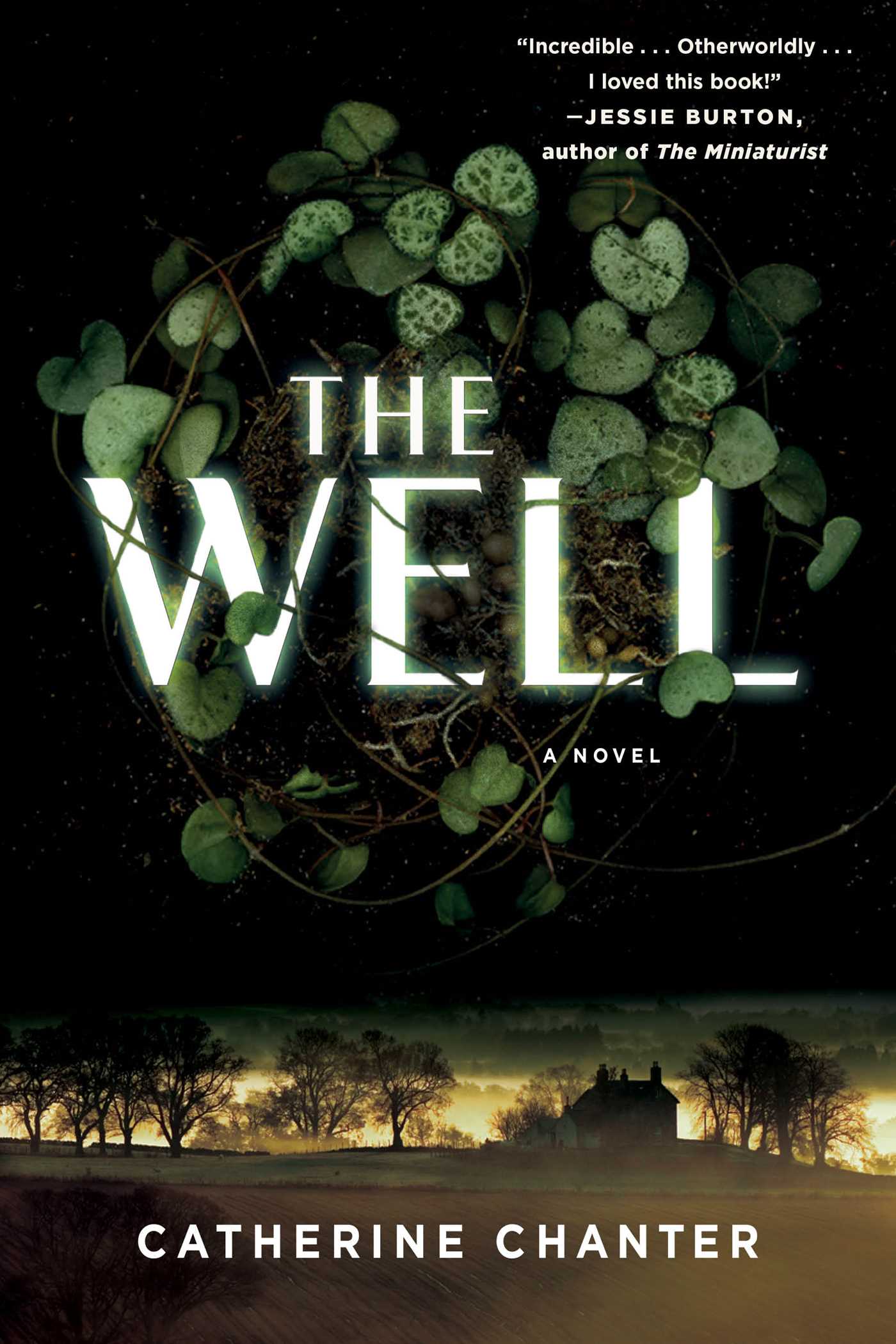A stunning, fairy tale debut that studies the importance of place in our lives.
by Ann Mayhew
The Well by Catherine Chanter (May 19) is a stunning, genre-bending debut that pictures an England devoid of water, and the woman living on the small parcel of land mysteriously exempt from the country’s drought.
Chanter’s protagonist, Ruth Ardingly, is on house arrest at the Well, a farm that she and her husband recently purchased as a place to start over, on charges of manipulating the supply of water in a present-day (or very near future) drought-riddled England. Three years prior, around the time Ruth first stepped foot on the Well, rain ceased to fall all over the country—except at the Well. Her home becomes a mecca, drawing religious fanatics, angry protesters and superstitious accusations.
This story is told in flashbacks, as Ruth tries to put together the pieces and figure out how she has gotten to where she is. Her memories follow the ins and outs of her increasingly dysfunctional marriage, her neighbors’ suspicion and jealousy, her complicated relationship with her daughter and, ultimately, a horrible tragedy she strives to solve. In the middle of this is the story of Ruth’s remarkably believable seduction into the Sisters of the Rose, a cult-like, woman-centric religion that worships the Rose of Jericho—and of which she is, for a time at least, the “chosen one.” It is ultimately this religious fanaticism that pushes the fragile situation at the Well to its breaking point.
The first person and retrospective perspective combine to make a dangerously unreliable narrator in Ruth. She spends her house arrest rehashing the scenes that lead up to the present, and her reflections result in not just suspicion of herself, but also those around her, without the other characters being able to represent themselves. Having difficultly recognizing her home when it is filled with security guards, and refusing to partake in former hobbies, such as gardening, Ruth falls into an obsessive quest to solve the aforementioned crime. This choice of perspective adds to the mystery of this novel, which already refuses to provide many answers. (Is the Well magical? How does it defy the drought?) The Well explores the seduction of answers—or the potential of answers—without giving any.
Chanter writes in beautiful prose that reflects the beauty of Ruth’s surroundings. The unexplained mysticism that permeates the pages gives The Well the feel of a fairy tale, but the kind in which the evil stepsisters cut up their feet to fit into the slipper, not the Disney versions told today. This genre-bending story convincingly slips between the mystery genre and literary fiction, and this believability—and the writing style—are the novel’s biggest strengths.
The Well explores how place is more than just a backdrop to what happens in our lives. While Chanter doesn’t give the land enough of a voice to make it into a character, it is clearly the (literal and figurative) foundation to Ruth’s story, and the source of her inner journey to redemption, when she decides she must become the Well’s scribe and catalog its existence. In this book, it is the Well that condemns and that redeems.
Finally, this novel is also a love song to the beauty of Earth. At one point, it’s mentioned that about one-third of England’s population is unemployed due to the drought. This drought has ruined livelihoods on a practical level, and, as Ruth’s story demonstrates, in unexpected and deeper ways. There is a sense of inevitability here, a hint of humankind’s fragility in the face of tragedy, as well as desperation and desire to transcend. There is danger, in the form of deadly nightshade and water itself, but also beauty.
And on a most basic level, isn’t a demonstration of the sublime exactly what all novels are trying to achieve? An exploration of beauty among the tragedy and terror, which combine to create this thing called life? The Well is a unique and ambitious novel that strives for much and achieves it.
[hr style=”striped”]
Ann Mayhew is a bookstore events coordinator and barista living in Minneapolis, as well as the reviews editor for HippocampusMagazine. She reviews books regularly for Publishers Weekly and BUST magazine, focusing on the occult, feminism, and the Civil War.




